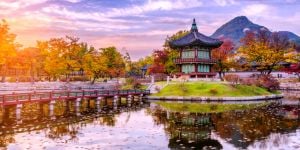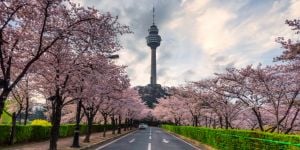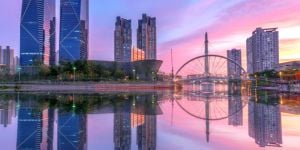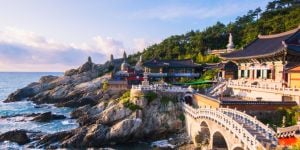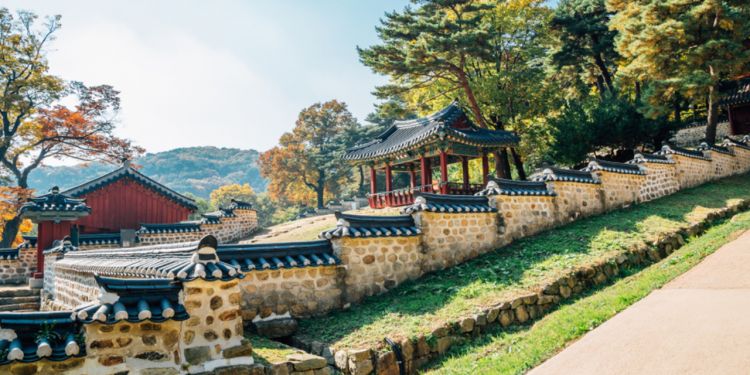
Gwangju, located in the South Jeolla province, is the sixth largest city in South Korea with a population of over 1.5 million. Over the past years, Gwangju has been attracting more and more tourists due to its interesting sites and attractions, including Gwangju Asia Culture Center, its many food streets, like Boribap Street and Duck Cook Street, as well as Gwangju Hyanggyo, a Confucian school from the Joseon Dynasty. Investors from around the world have been showing interest in this area as well, thus stimulating the city’s economy.
But before you move to Gwangju for work, it is important to understand the city's local economy and labour market.
The economy of Gwangju
Gwangju is one of the largest cities in South Korea counting more than 1.5 million people. Its Gross Domestic Product (GDP) per capita amounted to more than USD 19,000 in 2016. It is a highly industrialised city, even though its main industries used to be cotton, rice, breweries, and textile production. Today, the automotive field occupies a prominent place in Gwangju's economy, including the first-ever Chinese-owned electric car plant Joylong Automobile.
You will also find a wide range of companies producing appliances, high-tech, semiconductors, as well as ceramic products, handicrafts, and more. However, Gwangju still shines in the agriculture field exporting products such as cherry tomatoes, watermelons, peppers, strawberries, eggplants, and other fresh produce to all parts of Korea and Asia.
Features
Gwangju has been attracting tourists over the years thanks to its cultural values. The Asia Culture Center, for instance, focuses on cultural exchange between other Asian nations to discuss new, future-oriented ideas for an innovative Asian continent. Gwangju Art and Culture Center regularly hosts exciting temporary exhibitions and also features a broad permanent selection of cultural pieces and artefacts from prehistoric times until today. Gwangju Hyanggyo, a former Confucian school from the Joseon Dynasty (1392'1897) and the Gwangju National Museum are also among Gwangju proudest treasures. On top of that, Gwangju Biennale, a modern art festival, is a successful gathering for artists and art lovers from across Korea and other parts of Asia. The festival is held every two years.
Find a job in Gwangju
Finding a job is relatively easy because of the region's variety of industries. The easiest way to find a suitable position is by checking local classifieds and job offers in newspapers. Job websites are also a great resource to find positions in Gwangju. Failing that, recruitment agencies around the country specialise in finding a suitable position for any applicant, whether it is a local Korean or a foreign professional. English language teaching is among the most popular fields for English-speaking foreigners in South Korea. Gwangju is home to hundreds of private language centres and public schools hiring new teachers year-round.
Useful links:
We do our best to provide accurate and up to date information. However, if you have noticed any inaccuracies in this article, please let us know in the comments section below.
